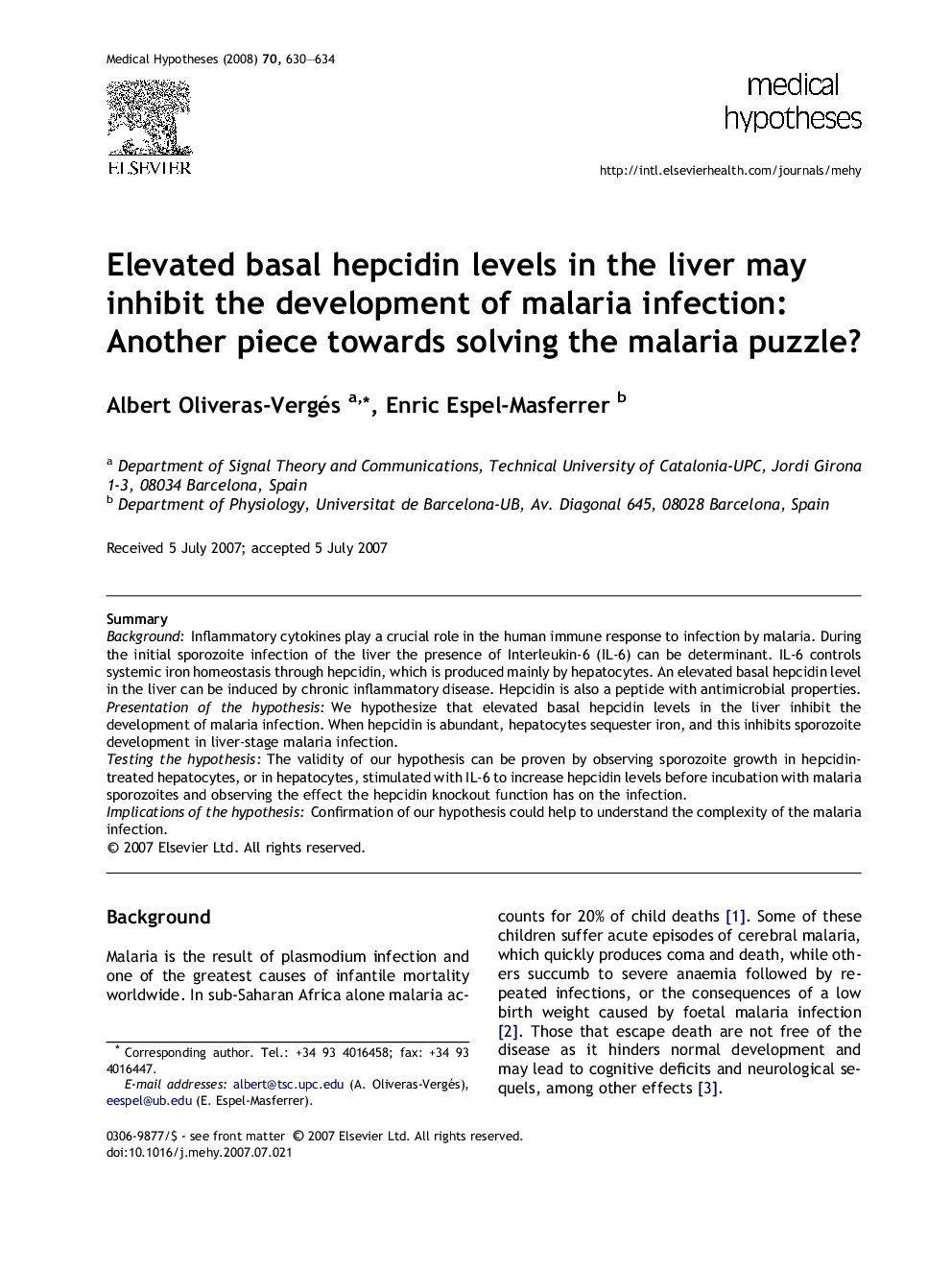| Article ID | Journal | Published Year | Pages | File Type |
|---|---|---|---|---|
| 2491076 | Medical Hypotheses | 2008 | 5 Pages |
SummaryBackgroundInflammatory cytokines play a crucial role in the human immune response to infection by malaria. During the initial sporozoite infection of the liver the presence of Interleukin-6 (IL-6) can be determinant. IL-6 controls systemic iron homeostasis through hepcidin, which is produced mainly by hepatocytes. An elevated basal hepcidin level in the liver can be induced by chronic inflammatory disease. Hepcidin is also a peptide with antimicrobial properties.Presentation of the hypothesisWe hypothesize that elevated basal hepcidin levels in the liver inhibit the development of malaria infection. When hepcidin is abundant, hepatocytes sequester iron, and this inhibits sporozoite development in liver-stage malaria infection.Testing the hypothesisThe validity of our hypothesis can be proven by observing sporozoite growth in hepcidin-treated hepatocytes, or in hepatocytes, stimulated with IL-6 to increase hepcidin levels before incubation with malaria sporozoites and observing the effect the hepcidin knockout function has on the infection.Implications of the hypothesisConfirmation of our hypothesis could help to understand the complexity of the malaria infection.
